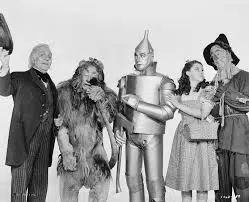
How Big Is the Republican Tent?
The Republican Party has long proclaimed itself to be the party of ideas rather than appearance. This purported fundamental philosophy manifests itself in presentation as a coalition bound not by personal identity or conformity, but rather, by a shared commitment to principles, debate, and conservative thought. Its slogans emphasize merit, ability and freedom of expression, suggesting a willingness to embrace diversity of perspective. Yet beneath these bold proclamations, a deeper question emerges. How truly committed is the Republican base to these ideals when faced with candidates who defy conventional norms of appearance, identity, or lifestyle?
Are Republicans Committed to Ideas Instead of Appearance
It took decades for African Americans to feel comfortable within the Republican Party. While pioneers like Alan Keyes, Herman Cain and Larry Elder broke down color barriers, one can still detect an undercurrent in certain places. Look at this tweet directed at Byron Donalds, who is running for governor in Florida.
The case of Vivek Ramaswamy, the biotech entrepreneur and gubernatorial candidate in Ohio, is even more disturbing. Ramaswamy is a textbook example of a non-white person who exemplifies the goals and ideals of the America First movement. Yet, his candidacy illustrates the tension between ideological aspiration and political reality. Ramaswamy presents himself as a thinker and innovator and has been praised by many within the party for his ideas. Unfortunately, he is also heavily scrutinized for his race and religion.
The Republican Party’s claim to ideological openness is further tested when considering candidates who fall outside traditional social norms. Take, for example, the hypothetical scenario of a trans person running for national office as a Republican. While some conservatives have long advocated for judging candidates based on policy rather than identity, the reaction within the party base might tell a different story.
Social media reactions and public commentary directed at Representative Sarah McBride (D-DE) often reveal skepticism, hesitation, or outright hostility based not on ideas but on personal identity.
Tweets, posts, and discussions hint that many voters remain bound by implicit biases or cultural expectations, signaling that the party’s proverbial “tent” may not be as “big” as its rhetoric suggests. The same underlying appearance-based prejudice the party claims it jettisoned long ago apparently still remains. It’s just shifted to different groups and different races.
Republicans Can’t Afford to Reject a Single Vote
Historically, the Republican Party has been a broad coalition: fiscal conservatives, libertarians, social conservatives, and more recently, populists, who have all found a home under the tent. Yet maintaining cohesion in such a coalition requires a careful balance between principle and personality. Policy innovation, articulate debate, and strategic thinking must coexist within a base that responds to familiarity, cultural cues, and identity alignment. The challenge is magnified when a candidate diverges sharply from the base’s expectations, even if their ideas align perfectly with the party platform.
Every time an opportunity to invite someone with non-conforming personal or physical characteristics into the fold is squandered, like Brittney Griner for example, the party loses a potential vote. Echo chamber politics is all fine and good, but elections are often won and lost by the voter’s perception of the party and the underlying Movement.
The question of inclusivity forces a reflection on what the party truly values. If candidates are welcomed only insofar as they resemble the archetype Republican, that is, straight, cisgender, traditionally masculine or feminine, comfortably within cultural norms, then the tent’s size is limited. A party claiming to be open to ideas must confront whether its own voters are willing to separate ideology from appearance, especially since it’s one of the most prominent charges they level at Democrats. Social media reactions provide a lens into the temperature of the party, often revealing an ugly side that reinforces Republican stereotypes that the opposition can exploit.
Some defenders argue that politics has always been influenced by perception and presentation, and that voters naturally gravitate toward candidates with whom they can identify. They contend that scrutinizing appearance or personal characteristics is unavoidable and does not necessarily indicate a rejection of ideas. However, when the pattern sidelines candidates based on identity rather than substantive policy proposals, it undermines the claim that the party values ideas above all else.
Moreover, this reflection is not just theoretical. It has implications for the party’s electoral prospects. Even if all illegal immigration is permanently halted, legal immigration is rapidly changing the demographics in the U.S. We’re swiftly diversifying, and cultural expectations are evolving. If the Republican Party limits its tent to those who fit a narrow image, it risks alienating talented individuals and innovative thinkers who could strengthen its intellectual and policy foundations. Broadening the tent to genuinely embrace diverse candidates, regardless of gender identity, appearance, or nontraditional backgrounds, could not only align practice with principle but also enhance competitiveness in elections.
In short, it’s time to stop patting ourselves on the back for inviting women and African Americans into the Republican tent and start asking why there are 13 openly LBGTQ+ Democrats in Congress and no Republicans? Why are there three openly gay Democrat governors and no Republicans? Why are there four Muslim Democrats in Congress and no Republicans?
Republicans Ignore Non-Conforming Groups at Their Own Peril
In the end, the question is not whether the Republican Party has slogans or mission statements that celebrate ideas, but whether it is willing to live up to them in practice. The tent’s size is ultimately determined by the willingness of its voters to separate substance from style and principle from presentation. When social media chatter, commentary, and voter behavior consistently demonstrate appearance or identity over ideas, it becomes clear that the party faces a fundamental tension between its aspiring self-image and its lived reality. It’s the same thing Democrats do in reverse, and for any of us who have been subject to the scorn of woke leftist Democrats, we know exactly what rejection due to appearance feels like.
As voters, analysts, and citizens reflect on this paradox, one conclusion emerges. The Republican tent is only as big as its base allows it to be. Claims of ideological purity are only as strong as the willingness of members to judge others by ideas alone. Until that principle is consistently applied, the party’s assertion of being the home of ideas rather than appearances will remain aspirational. A kind of declaration that looks good on paper but struggles under the scrutiny of real-world politics.



